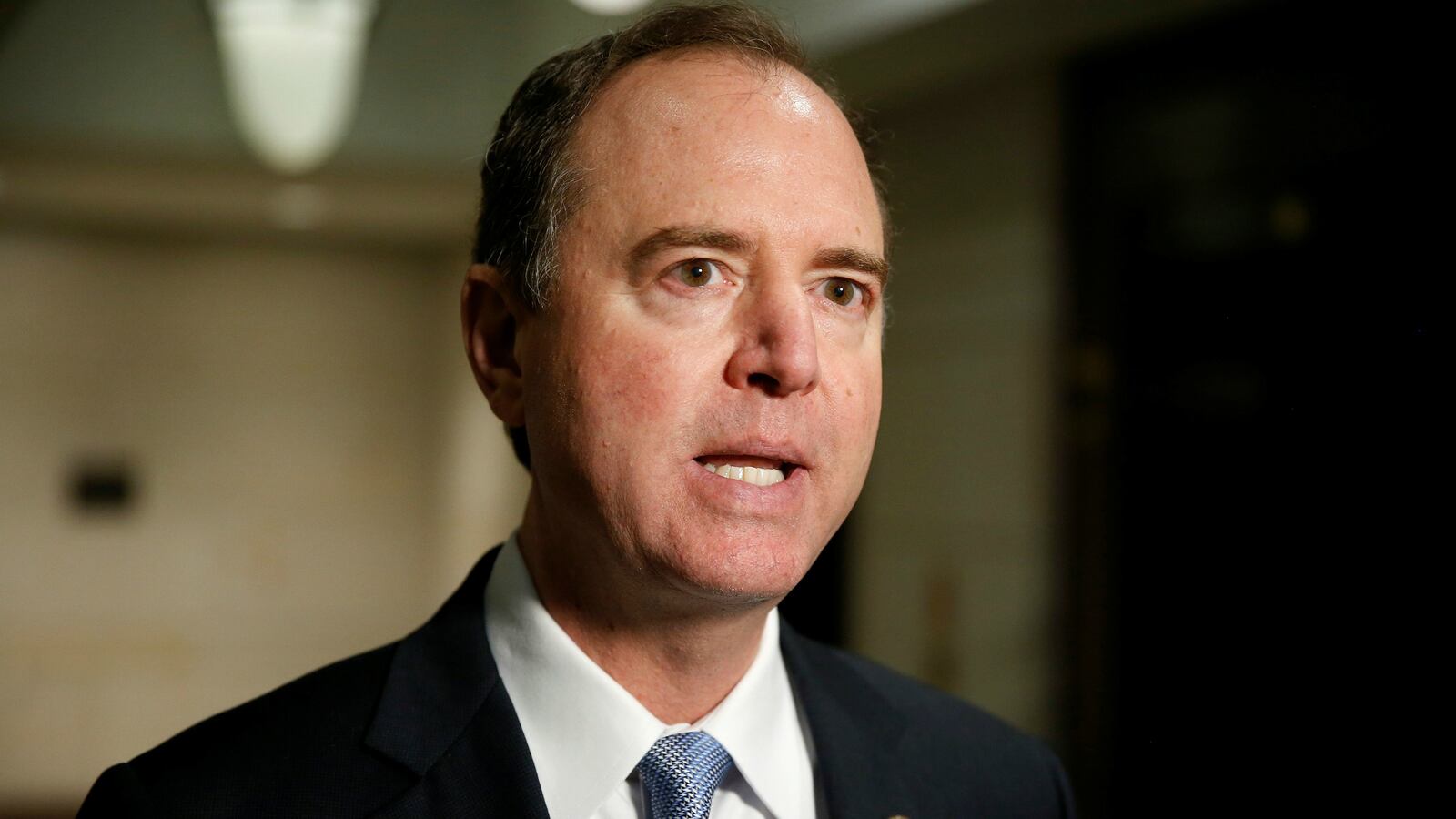Rep. Adam Schiff (D-CA), the top Democrat on the House Intelligence Committee, criticized the Trump administration’s response to Russia’s election meddling on Sunday in light of special counsel Robert Mueller’s indictment targeting Russians over the interference.
Schiff, who frequently draws the ire of President Donald Trump, also reiterated his dissatisfaction with the Obama administration’s initial response to the influence campaign, which according to Mueller’s indictment began in 2014.
But Schiff said Trump shouldn’t direct his anger at his predecessor as his own administration has yet to implement new sanctions against Russia that Congress approved last year.
“None of that is an excuse for this president to sit on his hands,” Schiff said on CNN’s State of the Union. “It is inexplicable that the president of the United States continues to sit on sanctions that Congress passed, that Congress wants enforced against Russia over this interference.”
In a tweet early Sunday morning before Schiff’s CNN appearance, Trump parroted Schiff’s longstanding criticisms of the Obama administration.
“Finally, Liddle’ Adam Schiff, the leakin’ monster of no control, is now blaming the Obama Administration for Russian meddling in the 2016 Election,” Trump said. “He is finally right about something. Obama was President, knew of the threat, and did nothing. Thank you Adam!”
Obama was heavily scrutinized last year after it was revealed that his administration was hesitant about confronting the Russian threat directly and informing the public about the Kremlin’s intentions: to undermine U.S. democratic institutions.
Trump then questioned whether Schiff was criticizing the Obama administration “as yet another excuse that the Democrats, lead by their fearless leader, Crooked Hillary Clinton, lost the 2016 election.” The president has routinely dismissed Russian election meddling as a Democratic “excuse” for Clinton’s loss in 2016.
Last July, Congress came together in an overwhelming bipartisan effort to approve sweeping new sanctions against Russia’s defense and intelligence sectors, in part as a punishment over its actions in the run-up to the 2016 election. The Trump administration tried unsuccessfully to water down those sanctions before the legislation was passed, and the president reluctantly signed the sanctions regime into law but characterized it as congressional overreach.
The administration has since missed deadlines to issue guidance for its implementation of the sanctions, and has been accused of stonewalling lawmakers from both sides of the aisle who tried to question the president about the delay. Last month, the State Department set off a firestorm of criticism on Capitol Hill when it announced it was punting on formally implementing the new sanctions by the Jan. 31 deadline. That decision has enraged both Democrats and Republicans.
Trump has tweeted about the Mueller indictment—which named 13 Russian individuals and three Russian companies who were allegedly involved in a campaign to sow discord and division ahead of the 2016 presidential election—more than a dozen times since it was unsealed on Friday. While Trump falsely claimed that the indictment concluded that there was no collusion between his campaign and Russian operatives, he did not explicitly condemn Russia for its actions.
At least one Republican senator said he was bothered by that.
“The clear the message here is Russia did mean to interfere in our election in whatever way that that might be,” Sen. James Lankford (R-OK), who serves on the Senate Intelligence Committee, said on NBC’s Meet the Press.






